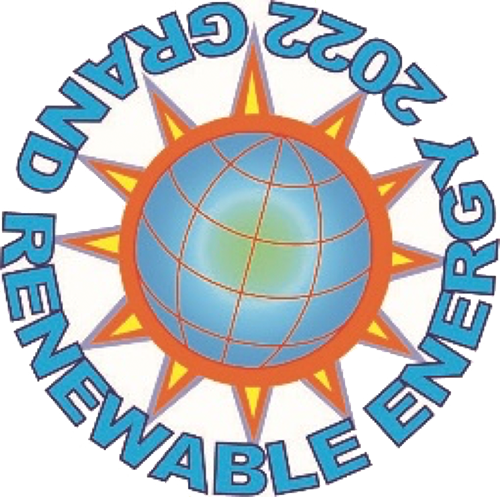During the area presentation terms, plenary session is planned in area initiative.
One or two plenary speakers are selected from the world in area by area.
The plenary speakers are shown here with instruction and face picture.
Plenary Session for Invited Speakers, Area by Area
Area1: Policy and Integrated Concept
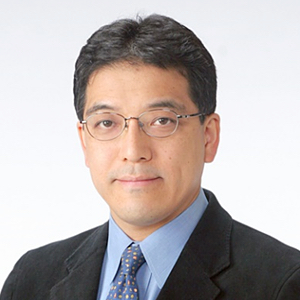
Hiroaki Nagayama, Professor at Graduate School of Advanced Integrated Studies in Human Survivability (GSAIS), Kyoto University.
Dr. Nagayama has gained over 20 years of working experience as an energy policy consultant , having worked for Mitsubishi Research Institute, Inc.(1988-2007) and Kyoto University (2008-present). He has worked for a number of electricity policy projects in such countries as Iran, the Philippines, Myanmar, and Pakistan. He is now closely involved with formulating an electricity regulatory agency and grid code for the government of Laos.
He is currently a council member of the Agency for Natural Resources and Energy, the “Mass Introduction of Renewable Energy / Next Generation Power Network Committee” and the “Renewable Energy as a Main Power Supply System Reform Subcommittee” .
His recent book, “The Political Economics of Renewable Energy as a Main-stream Energy and Power Sector Reform(in Japanese) ”, published by Toyokeizai Shinposha (2020), was given an energy-forum award by Energy-forum Co. Ltd.
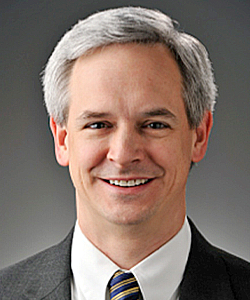
Ben Kroposki, PhD, PE, IEEE Fellow
Director – Power Systems Engineering Center
National Renewable Energy Laboratory
Dr. Ben Kroposki is the Director of the Power Systems Engineering Center at the National Renewable Energy Laboratory (NREL) where he leads NREL’s strategic research in the design, planning and operations of electrical power systems. He has over 30 years of experience in the design, testing, and integration of renewable and distributed power systems and has more than 150 publications in these areas with over 9,000 citations. Dr. Kroposki received his BSEE and MSEE from Virginia Tech and Ph.D. from the Colorado School of Mines. Dr. Kroposki is the recipient of the IEEE Power & Energy Society (PES) Ramakumar Family Renewable Energy Excellence Award. This award has been established to recognize outstanding contributions in the field of developing, utilizing and integrating renewable energy resources in the national and global energy scenarios. As an IEEE Fellow, Dr. Kroposki was recognized for his leadership in renewable and distributed energy systems integration. Dr. Kroposki is also an Adjunct Professor at the Colorado School of Mines and University of Colorado and teaches courses on integrating renewable energy into power systems.
Area2: Photovoltaics
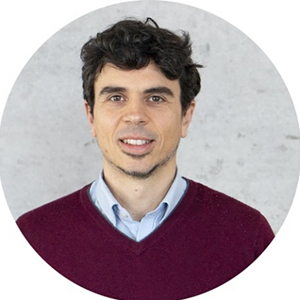
David Moser holds a Phd in Physics and coordinates the activities of the Research Group Photovoltaic Systems of the Institute for Renewable Energy, EURAC, Bolzano, Italy. His work focuses on reliable, bankable, sustainable solar PV modules and systems. He is also active in PV potential studies on a regional scale, member of ETIP-PV Steering Committee, Subtask Leader of the IEA PVPS Task 13 in “Performance and reliability of PV modules and systems”, and member of the Lifecycle Workstream of Solarpower Europe. He coordinates the European funded project TRUST-PV with the objective to reach a demonstrated increase in performance and reliability of solar PV components, solar PV systems, and in large portfolios of distributed and utility-scale solar PV. The TRUST-PV results will be tested and demonstrated from fab to field and all data gathered along the value chain will flow into a decision support system platform with enhanced decision-making using AI based on and beyond Industry 4.0 concepts.
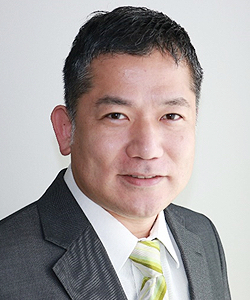
Dr. Takurou N. Murakami is the team leader of Organic-inorganic Hybrid PV Team of the Global Zero Emission Research Center (GZR) at the National Institute of Advanced Industrial Science and Technology (AIST) where he leads AIST’s strategic research in the next generation photovoltaic cells using organic-inorganic hybrid materials such as the perovskite solar cells and, he is a head of the project for the fundamental research parts in the development of the perovskite solar cells. He holds the PhD in material science and engineering, at the Toin Univ. of Yokohama in 2005 then he moved to Laboratory of Photonics and Interfaces (LPI) at Swiss Federal Institute of Technology Lausanne (EPFL). He became lecturer at Toin Univ. of Yokohama in 2007 then joined to AIST in 2011. He has over 20 years of experience in the research of the photo-electrochemistry and materials chemistry for photovoltaic cells based on organic materials. He received Honda-Fujishima Prize and Scientific American 50 Awards in 2005 and was co-inventor of the solid-state perovskite photovoltaics in 2012.
Area3: Solar Thermal Applications
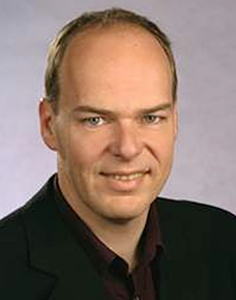
Prof. Dr. Klaus Vajen is director of the Institute of Thermal Engineering at the University of Kassel, Germany, where he holds the chair of Solar- and Systems Engineering, and furthermore distinguished professor of the Technical University of Kyrgyzstan in Bishkek. He holds a PhD in applied physics and is (co-)author of 300+ publications about (solar) thermal engineering, university education and energy policy. He is founder and director of the MSc-programme “Renewable Energies and Energy Efficiency” at the University of Kassel, as well as founder and head of the council “University Educations on Renewable Energies” with 120+ professors from German speaking countries. He developed and coordinates the Europe-wide PhD-education on solar thermal technology, together with Professor U. Jordan.
Klaus was member of the ISES Board of Directors from 2003-2011 and is a member again since 2018. He was Vice-president of ISES 2006-2007, founder of Young ISES (together with J. McIntosh) and Chair of the Solar World Congress 2011 in Kassel. Since 2019, he is the president of ISES.
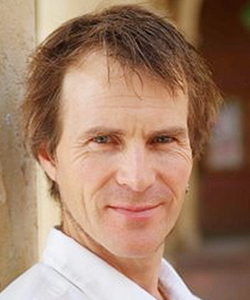
Graham “Gus” Nathan, Prof., Ph.D.,
Gus Nathan is a Professor in Mechanical Engineering at the University of Adelaide, the inaugural Energy Professional of the Year from the Australian Institute of Energy, SA, a Fellow of the Combustion Institute, a recipient of a Discovery Outstanding Researcher Award from the Australian Research Council and an ATSE KH Sutherland medallist. He was the bid leader for, and is now the Research Director of, the national $215m Heavy Industry Low-carbon Transition Cooperative Research Centre, the HILT CRC. He has led the development of six technology platforms, three of which are in ongoing commercial use and include the flame for Sydney Olympic Relay Torch, while three are currently being upscaled to decarbonise heavy industry. He has published some 300 papers in international journals, 250 in peer reviewed conferences, 50 commissioned reports and 13 patents.
As a co-founder of the international ISF Workshop, Professor Nathan also specialises in the joint development and application of both advanced laser diagnostic measurements and numerical models to de-risk emerging technologies in hydrogen production and heavy industrial processes. He also leads the Alternative Applications program in the $87m Australian Solar Thermal Research Initiative, which aims to lower the cost of solar fuels production, and a $14m ARENA funded project to introduce concentrating solar thermal into the Bayer Alumina process. He has worked closely with industry throughout his career, beginning with a 13 year industrial lectureship and followed, more recently, as the founding chair of the international High Temperature Minerals Processing (HiTeMP) Forum.
Area 4: Innovative Bioclimatic Architecture
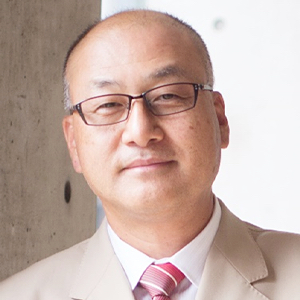
Shin-ichi Tanabe, Prof., Ph.D.
President
Architectural Institute of Japan
Tokyo, Japan
Shin-ichi Tanabe is a professor at the Department of Architecture, Waseda University, Japan. President of Architectural Institute of Japan (AIJ). Council member, Science Council of Japan. Fellow member of American Society of Heating, Refrigerating and Air-Conditioning Engineers (ASHRAE). He is a former president of the Society of Heating and Air-Conditioning and sanitary engineers, Japan.
He contributed to the theory of thermal comfort and indoor air quality towards to the Zero energy buildings. His research group has conducted numerous studies on ZEB and wellness for housing and buildings. He is Chair of ISO/TC146/SC6 (Indoor Air).
He graduated from the Department of Architecture, Waseda University in 1982. He worked as guest student at Technical University of Denmark during 1984-1986; as a visiting scholar at University of California, Berkeley during 1992-1993 and at Lawrence National Laboratory (LBNL) in 1996. He was a guest Professor at the Technical University of Denmark during 2002-2003.
He is serving for government committees of energy policy, energy efficiency, and ZEB.
Area 5: Wind Energy
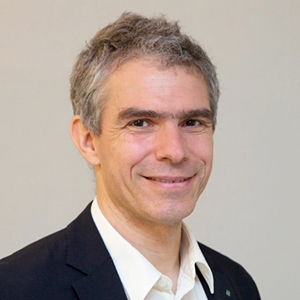
Dr. Bernhard Stoevesandt (Dr. rer. nat., M.Sc.)
Head of Department – Aerodynamics, CFD and stochastic dynamics, Fraunhofer Institute for Wind Energy Systems (IWES)
Bernhard joined Fraunhofer IWES in 2011. As head of department he has been responsible for the build-up of the numerical site assessment group, the aerodynamics and a number of R&D projects – both, publicly funded and in cooperation with industry – around his focus of the analysis of wind fields and their effects for wind turbines. The main emphasis of his work was on numerical methods but also literature studies and validation campaigns were part of the work.
Before he joined Fraunhofer IWES, he worked as a scientist at the center of wind energy research of the University of Oldenburg, Germany. In 2010 he obtained his PhD in applied physics from the University of Oldenburg with his research work on turbulence at wind turbines.
Bernhard has been working on projects related to wind energy for the last 18 years. Since 2004 he is active in numerics for wind turbines in research and industrial development, including German Offshore Wind Potential 2050.
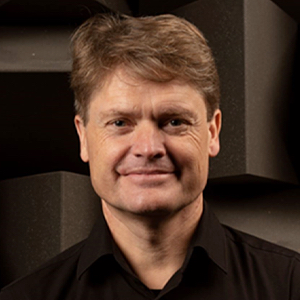
Prof. Christian Bak is a professor in rotor aerodynamics for wind turbines at DTU Wind and Energy Systems. He is head of the section Airfoil and Rotor Design and heading the new Poul la Cour Tunnel, that is a large aerodynamic and aeroacoustic wind tunnel dedicated wind energy. He has carried out research at Risø Campus since 1997 within theoretical and experimental airfoil and rotor aerodynamics. He has been designer and co-designer of the wind turbine dedicated Risø airfoils, which are used on MW rotors. Also, different concepts of rotor design have been investigated, e.g. he is co-inventor on the use of active trailing edge flaps for wind turbines. Examples of his activities are the detailed aerodynamic full-scale measurements on a 2 MW wind turbine rotor in the so-called DAN-AERO MW project, several wind tunnel measurement campaigns, principal organizer and project leader of the establishment of the artificial DTU 10 MW reference wind turbine and leading projects to investigate the influence of blade leading edge roughness on the aerodynamic performance. Finally, he has been the project leader of the establishment of the Poul la Cour Tunnel in Denmark.
Area 6: Biomass
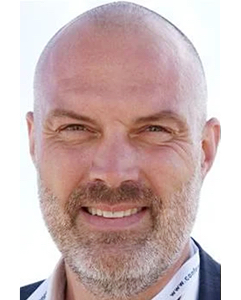
Lasse Rosendahl, PhD
Aalborg University · Department of Energy Technology
Lasse A. Rosendahl was born in Ribe, Denmark, in 1967. He received the M.Sc. and Ph.D. degrees in mechanical engineering from Aalborg University, Aalborg, Denmark. From 1998 to 1999, he was with the Department of Energy Technology, Aalborg University, as an Assistant Professor, and as an Associate Professor from 2000 to 2007. In 1999, he was employed with Research and Development Department, Grundfos A/S. He has been a Professor with Aalborg University since 2007, and until 2020, he headed the Advanced Biofuels at the department. In 2020, he became head of department at AAU Energy His current research interests include thermochemical biomass conversion technologies, liquid biofuels and novel energy technologies, including modeling, simulation, and design with a focus on optimized efficiency.
The mission of the Advanced Biofuels research group is to develop innovative and energy efficient thermochemical conversion processes for biomass feedstocks producing high grade bio-fuel products. In near and long term perspective biomass will become key as a source for renewable fuels and intermediates for carbon containing products. The biomass research programme is dedicated to adding value and sustainability to a wide range of products and to provide a viable route to large scale, sustainable production of biofuels. . See more here: www.energy.aau.dk

Prof. Dr. Eniya Listiani Dewi.
Research Professor at National Research and Innovation Agency (BRIN) of Indonesia. After obtained the Bachelor, Master and Doctoral degree from Applied Chemistry Department of Waseda University Japan on 2003, she is involved for more than 20 years on proton exchange membrane fuel cells development, bioenergy, hydrogen production technology, including catalyst and ionic membrane research. She has more than 200 publications and received more than 30 awards on science, engineering and technology fields, such Asia Excellence Award, The Habibie Award, General Electric Company Award, Engineering Award, BJ Habibie Technology Award, etc. As a JSPS Fellow, she got the Mizuno Award and Koukenkai Award.
She was recognized as Board Director of International Association Hydrogen Energy (IAHE), founder and chairperson of Indonesia Fuel Cell and Hydrogen Technology (IFHE), member of Indonesia National Academy of Science (AIPI) and the president of Indonesia Polymer Society (HPI). Currently, she is serving the government communities on energy transition policy.
Area 7: Hydrogen & Fuel Cell
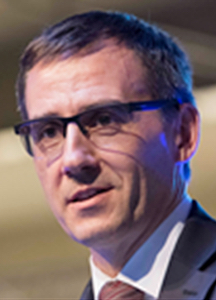
Dr. Laurent Antoni is Public Affairs manager for hydrogen technologies at CEA Liten, the French research and technology organization developoing alternative energies.
Laurent Antoni is since 2016 President of Hydrogen Europe Research, the European research association on hydrogen and fuel cells gathering more than 100 universities and research institutes, member of the Governing Board of the European Clan Hydrogen Joint Undertaking.
He is also President of the Technical Committee of Fuel Cells at the International Electrotechnical Commission (IEC/TC105) and a national representative in different working groups of international organizations (IEA Advanced Fuel Cells, IEA Hydrogen TCP, International Partnership for Hydrogen and fuels cells in the Economy - IPHE).
He contributes to several peer reviewed books and publications.
contact: laurent.antoni@cea.fr
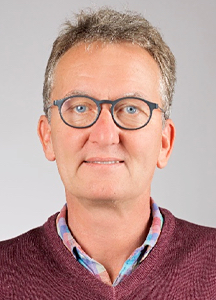
Dr. Felix N. Büchi studied chemistry at the University of Berne (Switzerland) and received his PhD in the area of fundamental electrochemistry in 1989.
After postdoc stay at Deakin University (Australia) he joined Paul Scherrer Institute in Switzerland, where, since 2002, he heads the Fuel Cell Systems and Diagnostics Group.
Work is focused on the development of porous materials for electrochemical conversion technologies such as PEM fuel cells and electrolyzers, with a focus on characterization by electrochemical and X-ray imaging technologies.
Area 8: Ocean Energy
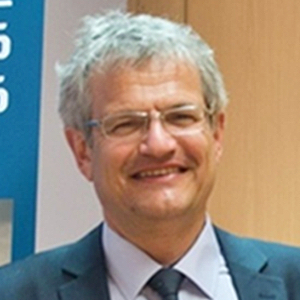
Dr. Y-H De Roeck has been educated in France as civil engineer (Ecole Polytechnique, ENPC) and applied mathematician (PhD, University Paris-Dauphine). In 1991 he joined Ifremer, the leading French oceanographic institute, contributing to numerical modelling programs from composite materials for marine usage to geophysics and coastal oceanography. His experience comprises: operational oceanography, environmental monitoring program, contribution to data policy at the European level. Since 2012, as Executive Director of France Energies Marines (www.france-energies-marines.org), he leads a public-private research institute fully dedicated to Offshore Renewables. He is the French delegate and since January 2021 the chairman of the Ocean Energy Systems Technology Collaboration Program of the IEA.
Area 9: Geothermal Energy and Ground Base Heat Pump
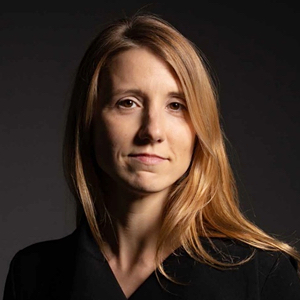
Ms. Lauren Boyd is the both the Deputy Director of the U.S. Department of Energy’s Geothermal Technologies Office and Office’s Enhanced Geothermal Systems (EGS) Program Manager. In her Deputy Director role, Lauren manages Office-wide efforts to improve performance, lower costs, and accelerate deployment of all geothermal technologies. In her EGS Program Manager role, Lauren is responsible for all activities related to EGS, including strategic planning, budget formulation, and project execution of a broad RD&D portfolio that includes EGS research, development and demonstration projects and new technology initiatives, such as the DOE’s Frontier Observatory for Research in Geothermal Energy (FORGE). Lauren also manages the Department’s international portfolio on geothermal and represents the U.S. on several international steering committees.
Lauren holds a Master of Science in Geology from University of North Carolina at Chapel Hill and a Bachelor of Arts in Geology from Vassar College.
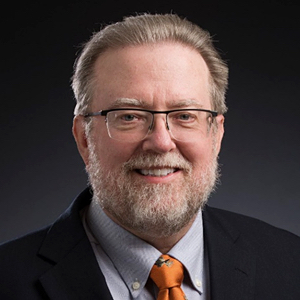
Dr. Jeffrey D. Spitler is Regents Professor of mechanical engineering at Oklahoma State University where he holds the OG&E Energy Technology Chair. He has 30 years of experience researching ground source heat pump systems, with the results from experimental, computational, and field research published in over 120 technical papers. Major contributions include development of widely used design software (GLHEPRO); development of equipment and analysis procedures for in situ measurement of ground thermal properties; development of ground heat exchanger simulation models now used in DOE2, EnergyPlus, and other tools; and field measurement of GSHP system performance in several commercial buildings. He is a Fellow of ASHRAE and IBPSA, and currently serves as Editor-in-Chief of the journal Science and Technology for the Built Environment. Academic background is,
Ph.D., Mechanical Engineering, University of Illinois at Urbana-Champaign, 1990.
M.S., Mechanical Engineering, University of Illinois at Urbana-Champaign, 1984.
B.S., Mechanical Engineering, University of Illinois at Urbana-Champaign, 1983.
Area 10: Energy Network
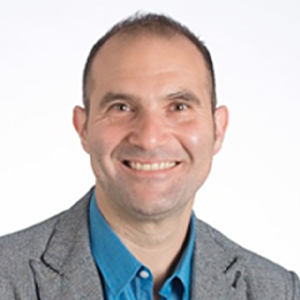
Prof. Pierluigi Mancarella is Chair Professor of Electrical Power Systems at The University of Melbourne (Australia) and Professor of Smart Energy Systems at The University of Manchester (UK). His key research interests include techno-economic modelling and analysis of multi-energy systems, grid integration of renewables and distributed energy resources, energy infrastructure planning under uncertainty, and security, reliability and resilience of low-carbon networks.
Pierluigi is the Energy Systems programme lead at the Melbourne Energy Institute, an IEEE Power and Energy Society Distinguished Lecturer, the Convenor of the Cigre C6/C2.34 Working Group on “Flexibility provision from distributed energy resources”, and the technical chair of the 2022 International Microgrids Symposium. He also holds the 2017 veski Innovation Fellowship for his work on urban-scale virtual power plants and is a recipient of an international Newton Prize 2018 for his work on power system resilience in Chile. Currently he is actively involved in a number of research and consultancy projects with industry and policy makers in Australia and internationally, particularly in the areas of integrated planning of electricity-hydrogen infrastructure and development of distributed energy markets.
Pierluigi is author of several books and over 300 research papers and reports, is an Editor of the IEEE Transactions on Power Systems, the IEEE Transactions on Smart Grid, and the Oxford Open Energy journal, and has been visiting researcher/professor in a number of international institutions, including NREL in Colorado, Tsinghua University in China, Ecole Centrale de Lille in France, and the Universidad de Chile.
Area 11: Energy Conservation and Heat Pump
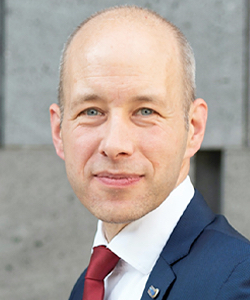
Mr. Thomas Nowak is a long term (renewable) energy aficionado. Apart from closely following the energy transition both in the electricity and heating sectors, he is the owner of a heat pump, a PV power plant and a building in which both peacefully cooperate.
In his professional live, Thomas represents the European Heat Pump Association (EHPA) as Secretary General in Brussels. His main responsibilities are the representation of the industry at the European institutions, networking with other stakeholders in the field of heating and cooling as well as the management of the association and its future development.
Thomas has published several articles on heat pump technology and the integration of heat pumps in the energy system and has spoken on this topic in European and international conferences.
He has also been contributing to scientific publications including the IEA energy technology perspectives and the REN21 Renewables Global Status Report.
Before working for the EHPA, he has worked in several projects on the economic and social benefits of renewable energy.
Thomas holds a university degree in business administration and economics.
Area 12: Small Hydro and Non-Conventional Energy
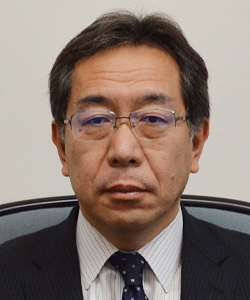
Dr. Kazuyoshi Miyakawa is a professor in the Department of Applied Mechanical and Aerospace Engineering, Faculty of Science and Engineering, Waseda University. He is now focusing on researching the internal flow, performance, design optimization, and flow-induced vibrations of hydro turbines, cryogenic pumps for rockets and liquid hydrogen, turbochargers for automobiles, etc., at the University. He is promoting research on turbo-machinery in Japan as the vice-chairman of the Turbomachinery Association and the leader of the Japan Society of Mechanical Engineering fluid engineering division. In the past, he was the chair of the IHAR Hydromachinery Symposium in Kyoto in 2018 and ISROMAC in 2021. Professor Miyagawa received his bachelor's and master's degrees from Waseda University's Faculty of Science and Engineering, Department of Mechanical Engineering, and his doctoral degree from Osaka University. From 1985 to 2011, he conducted research and development at the research center of Mitsubishi Heavy Industries Ltd., developing many hydraulic turbines, large capacity and high head pump turbines for pumped-storage power stations, and various pumps. Especially for small and medium-sized hydro turbines for renewable energy, he developed new concept turbines operated as actual machines after joining Waseda University. He will be pleased to present such a new type of hydro turbine development at the conference.
